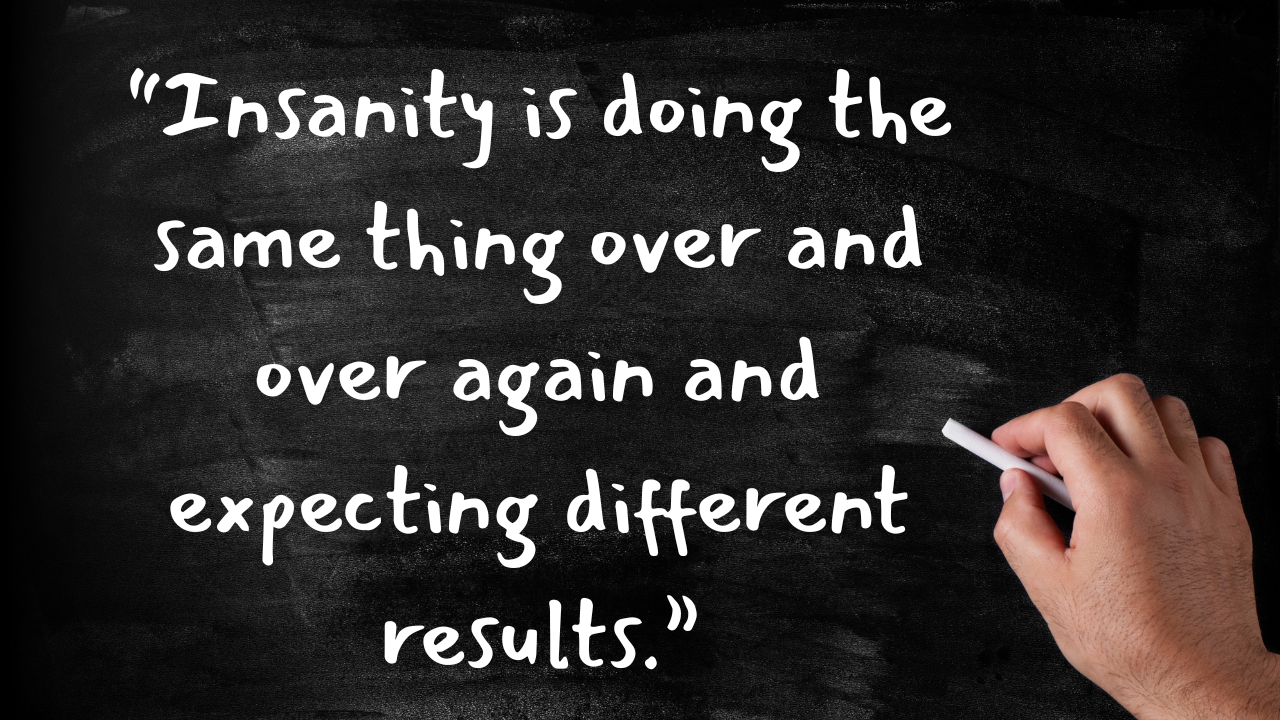
The Biggest Mistake You’re Making When Restarting a Diet & How To Avoid It
May 21, 2025For most people, starting a diet feels like the natural solution when they’ve fallen off track. You might recognise the pattern: you’ve been indulging more than you’d planned, your clothes feel a little tighter, and you decide it’s time to “get back on it.” You pick a start date, maybe even a Monday, and vow that this time will be different.
You stock up on “healthy” foods, clear out the cupboards, and dive headfirst into a new plan.

Now, you think back to the diets you’ve done before. You remember the ones that helped you lose weight or feel better, even if it was just for a while.
You dig out the recipes, the meal plans, and the structure that “worked.”
You prepare to follow it exactly as you did before, convinced that this time will be the time it sticks.
Because what you did before worked… didn’t it?
Well, let’s pause there. I’d like to offer a counter-opinion.
What you did before did not work.
If it had worked, you wouldn’t be here, preparing to start over again. Am I right?
A diet that you can only stick to for a few days or weeks doesn’t work.
A plan that feels impossible to sustain in the long term doesn’t work.
Think about it—if you couldn’t keep doing it, then it wasn’t truly effective.
For a while, things might have gone well. You probably felt motivated, determined, and in control. But then life happened. A busy week at work, a stressful situation, or even just boredom set in, and suddenly the plan became impossible to follow. Before you knew it, you were back where you started—discouraged, frustrated, and telling yourself you’d “start again” next week, next month, or next year.
Sound familiar?
This stop-start cycle is one of the most common traps people fall into when trying to improve their health. And here’s the surprising truth: the biggest mistake isn’t falling off track. It’s the way we approach restarting.
When you restart a diet, the natural assumption is that you’re wiping the slate clean and beginning from scratch. But this mindset ignores a crucial opportunity—the chance to learn from your past experiences. Every time you’ve tried a diet or health plan, you’ve gathered valuable data about what works for you and what doesn’t. Ignoring that information means you’re likely to repeat the same mistakes, over and over again.
Why “Starting Over” is a Myth
Let’s challenge the idea that you’re starting from scratch every time you restart a diet. When you say, “I’m starting again,” it can feel like all the effort you’ve put in before has been wasted. But that’s not true. Every attempt you’ve made—whether it succeeded or not—has taught you something.

Now this is empowering and should shift the way you think about diets.
Think of it this way: every diet, plan, or approach you’ve tried has been an experiment. Even if it didn’t work out the way you hoped, it wasn’t wasted time. It was experience. And experience is what helps you grow stronger, wiser, and more prepared for the next step.
In fact, the more times you’ve tried, the more information you have about what works for you—and what doesn’t. That’s not failure; that’s feedback.
The Power of Reflection
Albert Einstein famously said,

So why not try something different this time? Instead of diving back into the same routine, take a moment to pause and reflect.
Ask yourself these questions:
- What worked for you before?
- Was there a specific meal plan, a daily walk, or a structured routine that made things easier?
- What didn’t work? Were there particular triggers or obstacles that threw you off course?
- Why did you fall off track? Was it stress, time constraints, or a lack of support?
- What could you do differently this time? Could you try a new approach, ask for help, or simply give yourself more grace?
Reflection allows you to learn from your experiences instead of repeating the same patterns. It’s not about starting over—it’s about building on what you’ve already learned. Think of it as an experiment!
Turning Feedback into Growth
Here’s the beauty of reflection: It transforms stumbling blocks into stepping stones. When you take the time to understand why something didn’t work, you empower yourself to make better choices moving forward.
For example, maybe you’ve realised that a rigid diet plan doesn’t suit your lifestyle. Or perhaps you’ve noticed that you tend to fall off track when life gets busy. These insights are invaluable because they help you tailor your approach to your unique needs and circumstances.
Falling off track isn’t failure—it’s an opportunity to recalibrate. Every time you pause, reflect, and adjust, you’re moving closer to lasting change.
A Smarter Way Forward
The key to breaking free from the stop-start cycle is to shift your mindset. Instead of seeing each stumble as a reason to start over, view it as part of your journey. Progress isn’t about perfection—it’s about persistence.
Here’s how to move forward:
Embrace Reflection: Take time to understand what worked, what didn’t, and why.
Set Realistic Goals: Focus on small, sustainable changes that fit your lifestyle.
Be Kind to Yourself: Remember, setbacks are normal. Treat yourself with the same compassion you’d offer a friend.
Seek Support: Whether it’s a friend, a coach, or a community, having support can make all the difference.
Final Thoughts:
Remember, you’re not starting over—you’re building on everything you’ve learned so far. Every step you take, even the ones that feel like missteps, is part of your journey.
So, take a deep breath, reflect on what you’ve learned, and move forward with confidence. You’ve come so far already, and the best is yet to come.
Here’s to making this your time for growth, renewal, and lasting change.

